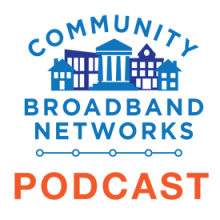What Can We Expect to See in 2023? - Episode 534 of the Community Broadband Bits Podcast

This week on the podcast, Christopher is joined by returning guest Blair Levin. Levin has served as former chief of staff to FCC Chair Reed Hundt as well as executive director of the National Broadband Plan (2009-2010). Nowadays, he's a nonresident senior fellow at Brookings, and joins Christopher to unpack all that we might expect to see at play over the coming year. The show covers a lot of ground, from the renomination of Gigi Sohn to the FCC and the issues likely brought by a complete commission, to how much impact (and where) BEAD will have, to the real benefits and obvious weak spots in the Affordable Connectivity Program, to the upcoming battle between DISH, the cable monopolies, and the fixed wireless offerings from the mobile providers, and much more.
This show is 53 minutes long and can be played on this page or via Apple Podcasts or the tool of your choice using this feed.
Transcript below.
We want your feedback and suggestions for the show-please e-mail us or leave a comment below.
Listen to other episodes here or view all episodes in our index. See other podcasts from the Institute for Local Self-Reliance here.
Thanks to Arne Huseby for the music. The song is Warm Duck Shuffle and is licensed under a Creative Commons Attribution (3.0) license.

